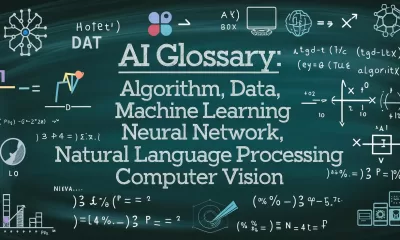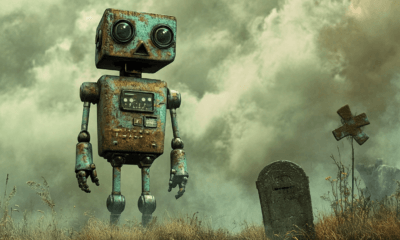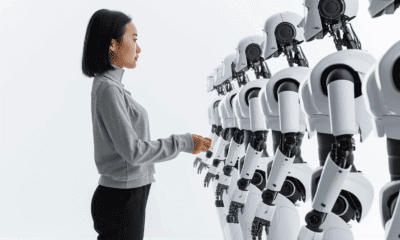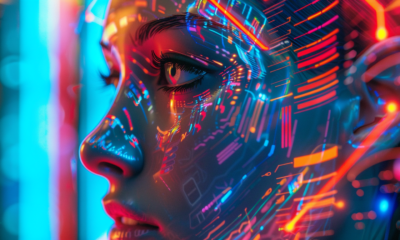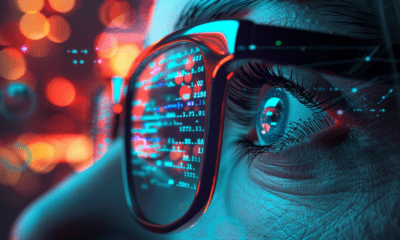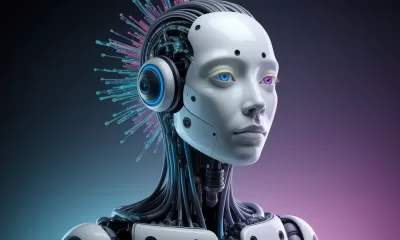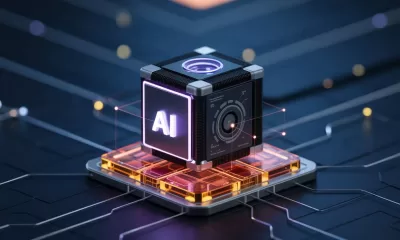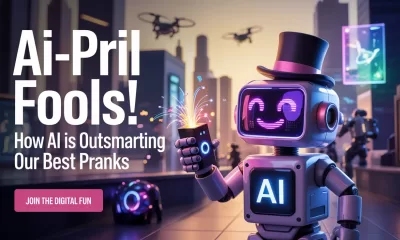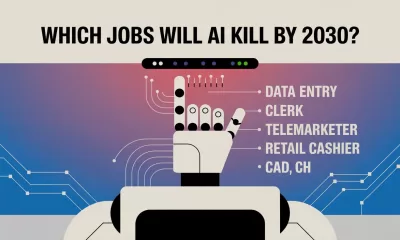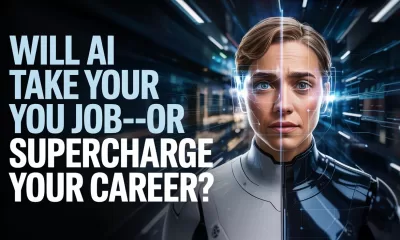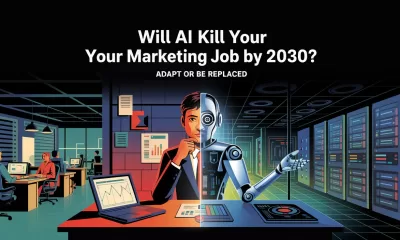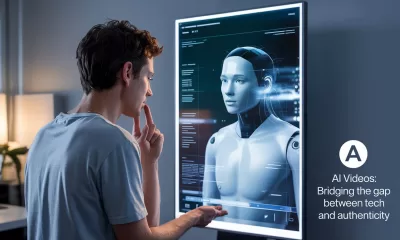Business
AI as Your Ultimate Career Tool: How to Get Promoted Faster
Discover how AI is empowering professionals to upskill, explore new career paths, and achieve their career goals faster.
Published
1 year agoon
By
AIinAsia
TL;DR:
- AI can help upskill professionals faster, potentially leading to promotions.
- Generative AI can help people explore new career paths and envision possibilities.
- AI-assisted learning is becoming more accessible and affordable.
How AI is Reshaping Career Development
The ever-evolving landscape of artificial intelligence (AI) is not only transforming industries and businesses, but also fundamentally reshaping how people approach career development in Asia. Accessible generative AI, a specific type of AI that can create new data, is empowering individuals to upskill their professional expertise at an accelerated rate, opening doors to exciting new career possibilities.
This transformative potential of AI is not merely theoretical. Experts predict that AI-powered tools can significantly speed up the time it takes for workers to reach peak performance in their roles, potentially leading to faster promotions and career advancement. According to Lareina Yee, a senior partner at McKinsey, individuals with less experience are particularly embracing AI technology to demonstrate expertise and climb the professional ladder quicker.
“It accelerates their ability to demonstrate expertise,” Yee said. “Strategic AI usage can speed up the time it takes for workers to reach peak performance in their role, which often makes up the first year of a job.”
This accelerated learning translates into tangible benefits for both employees and employers. As workers gain proficiency faster, they become more valuable assets to their organizations, contributing to increased productivity and improved performance.
Democratizing Learning: How AI is Breaking Down Barriers
AI is not only accelerating the pace of learning, but also making it more accessible and affordable. With the emergence of AI-powered learning platforms like Khanmigo and Inflection AI, individuals no longer require expensive traditional education to acquire new skills and qualifications.
These platforms offer personalized learning experiences tailored to individual needs and learning styles, making knowledge acquisition more efficient and effective. Additionally, the affordability of these platforms removes financial barriers, opening doors for individuals who might not have otherwise been able to afford further education.
The Human Factor: Considerations in AI-powered Career Transitions
While AI offers undeniable advantages in career development, it is crucial to acknowledge the human element that remains central to the process. Even with AI-powered learning tools, human decisions still play a critical role in career transitions, particularly during the hiring process.
Karen Panetta, a fellow at the Institute of Electrical and Electronics Engineering, emphasizes the importance of being mindful of potential biases that can be inadvertently incorporated into AI-powered hiring algorithms. These biases can limit opportunities for qualified candidates, highlighting the need for human oversight and ethical considerations in the development and deployment of AI-powered tools.
Conclusion: AI – A Powerful Ally in Your Career Journey
Despite the limitations, AI presents a powerful force for positive change in the realm of career development. By leveraging the capabilities of AI-powered learning platforms and tools, individuals can upskill faster, explore new career paths, and unlock their full potential.
As AI technology continues to evolve, it is essential to embrace its potential while remaining vigilant about potential biases and ethical considerations. By harnessing the power of AI responsibly, we can create a more inclusive and equitable future of work, where everyone has the opportunity to thrive and achieve their career aspirations.
Provocative question: Do you think AI will eventually replace the need for traditional education altogether? Why or why not? Let us know in the comments below!
You may also like:
Pivot into an AI job within 6 months!
AI Upskilling: Can Automation Boost Your Salary?
OpenAI Price Drop and “Lazy” GPT-4 Fix: What You Need to Know
Asia’s AI Ascendance: Top 10 Stories
Google and EnterpriseSG Launch Gen AI Accelerator in Singapore to Empower 100 Startups
Or check out Khan Academy, which is a prime example of how AI is being used to democratise education and make learning more accessible, and use AI for career advancement.
Author
Discover more from AIinASIA
Subscribe to get the latest posts sent to your email.
You may like
-


AI Glossary: All the Terms You Need to Know
-


Adrian’s Arena: Reaching Today’s Consumers – How AI Enhances Digital Marketing
-


‘Never Say Goodbye’: Can AI Bring the Dead Back to Life?
-


The View From Koo: Does Your Business Really Need an AI Strategist? The Surprising Answer
-


Craft Compelling Cover Letters with ChatGPT
-


ChatGPT: The Ultimate AI-powered Resume Builder
Business
Will AI Take Your Job—or Supercharge Your Career?
AI-driven job disruption is already here. Discover practical steps for workers in Asia to stay employable, relevant, and ready for the future.
Published
1 week agoon
April 9, 2025By
AIinAsia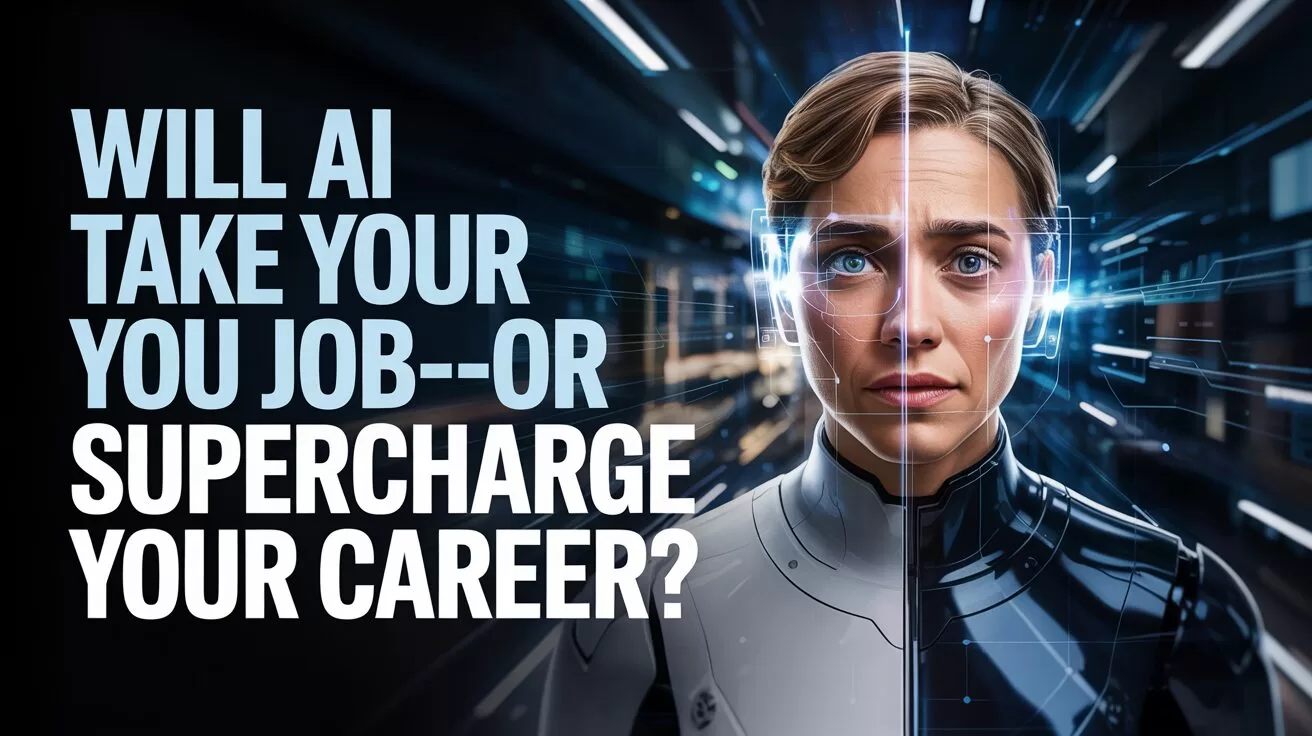
TL;DR – What You Need to Know in 30 Seconds
- Generative AI is already reshaping careers, causing job losses in industries from finance to creative roles.
- Workers must continually upskill, strategically plan career moves, and focus on roles AI complements rather than replaces.
- Companies and governments must significantly increase retraining efforts to help workers adapt effectively.
Is AI About to Steal Your Job? Here’s How to Stay Ahead in Asia
For many, AI started as a helpful assistant for menial tasks, quick research, or even generating funny memes. But today, it’s taking a serious turn, reshaping industries, displacing jobs, and changing careers overnight.
Just ask Jacky Tan. After thriving for over 15 years as a freelance marketing consultant in Singapore, Jacky found his livelihood disrupted—not just by the pandemic—but by generative AI tools like ChatGPT, which empowered his clients to produce their own content. The result? Jacky, along with countless others, faced a stark choice: adapt quickly or risk becoming obsolete.
Jacky pivoted completely, leaving marketing to open a successful home-based food business, CheekyDon, specialising in Japanese rice bowls. But not everyone can—or will—reinvent themselves so easily. As AI continues to infiltrate the workforce, what can you do to ensure you’re prepared?
Job Disruption: More Real Than Ever
It’s no longer theoretical. Meta, ByteDance, DBS Bank, Grab, and Morgan Stanley have all announced layoffs or workforce reshuffling directly linked to AI-driven efficiencies. Analysts predict as many as 200,000 banking jobs globally could vanish within five years due to AI, highlighting sectors like finance, customer service, risk management, and tech as especially vulnerable.
The numbers don’t lie: The World Economic Forum anticipates 11 million new AI-related jobs globally by 2030—but 9 million existing roles will disappear. And the shift won’t just hit repetitive tasks. Highly skilled roles like writers, programmers, PR professionals, and even legal experts face substantial disruption.
Why AI Displaces Jobs—and Creates New Ones
Here’s the paradox: while AI promises increased productivity, it often leads to job losses because current skills don’t match the needs of new AI-augmented roles. Retraining existing workers is crucial but challenging. In places like Singapore, where skilled workers are scarce, companies struggle to balance the speed of AI integration with retaining talent.
The good news? Jobs involving deep human interactions, emotional intelligence, strategic thinking, or managing AI tools themselves remain safer—for now.
How to Stay Relevant in an AI-Dominated Market
So, how can you protect your career from being displaced by AI? Here are actionable steps tailored for the rapidly shifting Asian job market:
1. Continuous Upskilling Is Non-Negotiable
The days of one-off training are over. Commit to lifelong learning by acquiring skills in AI-related fields, from data analytics to AI management tools. Invest in soft skills—like critical thinking, empathy, and strategic communication—which AI struggles to replicate effectively.
2. Proactively Plan Your Next Career Move
Ask yourself, as EY’s Samir Bedi suggests: “What am I upskilling for?” Plan two or three career steps ahead, not just for immediate skill gaps. Explore lateral career transitions that diversify your skillset, making you versatile across industries.
3. Look for Roles Complemented by AI, Not Replaced by It
Jobs with tasks AI can augment rather than entirely replace—like managing automated systems, strategic marketing, or roles that require significant human touchpoints—are safer bets.
Employers Must Step Up, Too
The responsibility doesn’t rest solely on workers. Companies must actively retrain employees to handle AI disruptions effectively. Currently, only around half of Singaporean workers feel their employers provide sufficient training opportunities. Organisations that actively support their teams through retraining will reap long-term rewards, maintaining both institutional knowledge and market reputation.
Asia’s Workforce at the Crossroads
We’re facing nothing less than the Fourth Industrial Revolution, driven by generative AI. Unlike previous waves of automation, AI can replace tasks once thought too complex or creative for machines. But remember, while AI might take your current role, it also opens doors to entirely new career paths—provided you’re ready to step through them.
Are you prepared to let AI shape your future—or will you shape your own future with AI? Let us know in the comments below!
You may also like:
- Young Workers are Embracing ChatGPT
- 10 ChatGPT Prompts to Ignite Your Business Evolution
- You can also learn more at Singapore’s SkillsFuture by tapping here.
Author
Discover more from AIinASIA
Subscribe to get the latest posts sent to your email.
Business
The Three AI Markets Shaping Asia’s Future
Explore the three interconnected AI markets shaping Asia’s technological landscape—traditional AI, training infrastructure, and enterprise solutions—and discover how each drives innovation.
Published
2 weeks agoon
April 6, 2025By
AIinAsia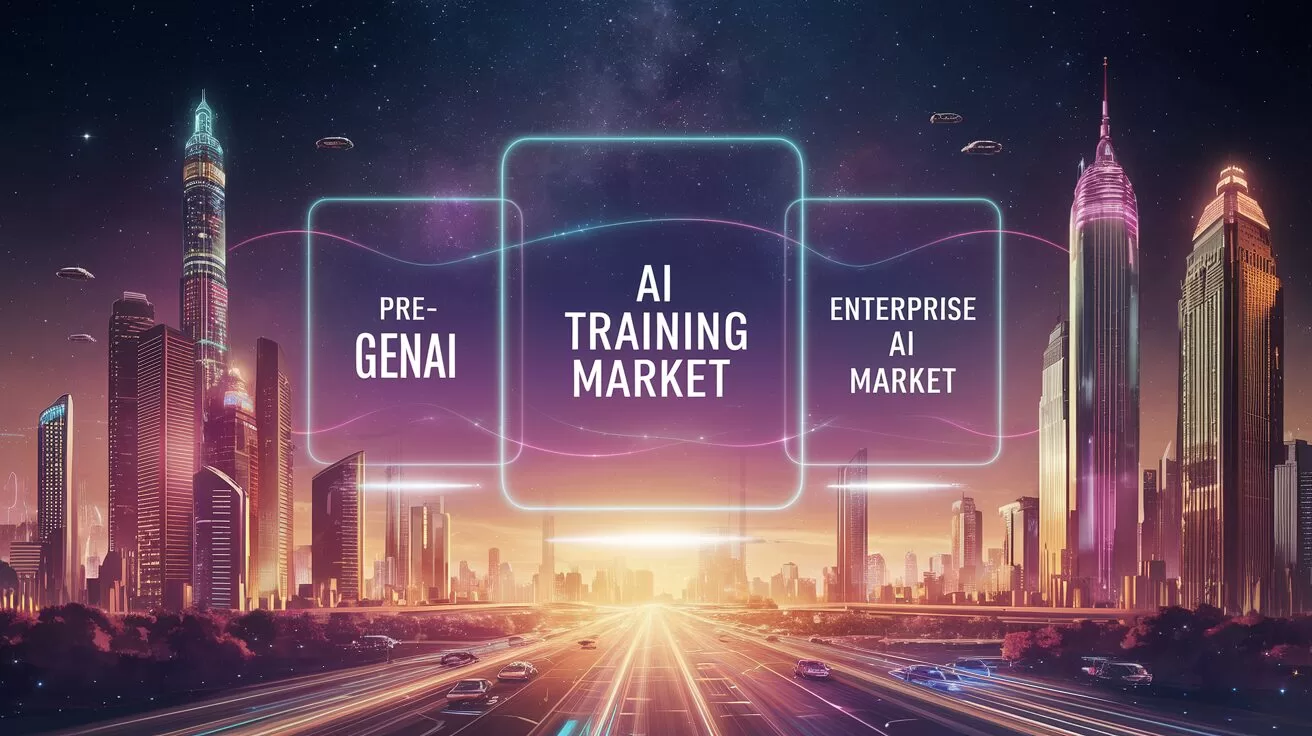
TL;DR – What You Need to Know in 30 Seconds
- AI isn’t one monolithic market—it’s three interconnected segments:
- 1. Pre-GenAI (traditional AI): Fundamental techniques that underpin data-driven solutions.
- 2. AI Training Market: Resource-intensive frontier models driving the next AI breakthroughs.
- 3. Enterprise AI Market: Real-world applications delivering measurable business outcomes.
- Understanding their interplay is critical for Asian businesses aiming to maximise ROI from AI investments.
Are We Missing the Bigger Picture in the AI Race?
From smarter chatbots to insightful analytics, AI’s not one market—it’s three interconnected ones, each shaping how Asia leverages technology.
If you’ve spent any time recently skimming headlines about artificial intelligence, you’d be forgiven for thinking that generative AI is the only show in town. But AI isn’t just ChatGPT, Midjourney, or flashy avatars of celebrities endorsing your new favourite tech gadget. Behind the scenes, three distinct but intertwined markets are at play: the Pre-GenAI Market, the Training Market, and the Enterprise AI Market.
But what exactly are these three markets, and why should Asian businesses care?
Let’s unpack them one by one and understand how they converge to drive the future of innovation across Asia.
1. The Pre-GenAI Market: The Building Blocks of AI
Generative AI may be the current media darling, but the roots of AI go far deeper. We’re talking about traditional AI—technologies like machine learning (ML), reinforcement learning, and computer vision. These foundational techniques have been quietly evolving for decades, long before ChatGPT ever typed out its first response.
Contrary to popular belief, traditional AI hasn’t lost its relevance—far from it. In fact, the rise of generative AI has amplified its importance. Why? Because generative AI feeds on data often produced by traditional AI methods. For instance, Dell Technologies frequently uses machine learning to streamline supply chains or improve factory efficiency. These methods don’t get less important just because GPT-5 is around the corner—they become essential.
In short, traditional AI is like rice in Asian cuisine—fundamental, reliable, and always necessary, no matter what fancy new dish appears on the menu.
2. The Training Market: Powering AI’s Frontier
Next up is the AI training market—think of it as AI’s heavy lifting division. This market is dominated by big names you’ll recognise (OpenAI, Google DeepMind, Nvidia, Meta) who are making gigantic investments in infrastructure to create foundational AI models. Picture rows and rows of servers, massive GPU clusters, and sprawling data centres, humming 24/7.
These frontier models—like GPT-4 or Gemini—require immense computational resources. This isn’t just about bragging rights; it’s about pushing the boundaries of what AI can do. The innovations here spill directly into practical tools businesses use every day, like AI-driven coding assistants or creative platforms for content creation.
In Asia, we’re seeing heavy investment in this market too. Take Singapore’s AI supercomputing initiatives or China’s Baidu and Alibaba building mega-AI clusters. These moves aren’t just technological vanity—they’re strategic investments in the future.
3. The Enterprise AI Market: Real-World Results
And then there’s the enterprise AI market, arguably the most pragmatic of the three. Enterprises aren’t racing to build the next ChatGPT killer. Instead, they’re laser-focused on AI that solves real business problems—like optimising inventory management, enhancing customer support, or boosting marketing effectiveness.
Unlike the flashy training market, the enterprise market moves slower but deliberately. Enterprises demand reliability, compliance, and measurable outcomes—exactly the opposite of the ‘move fast and break things’ mentality we see in frontier AI research.
Across Asia, the enterprise AI market is thriving precisely because it offers clear returns. Banks in Indonesia deploy AI-driven chatbots to handle customer queries efficiently. E-commerce giants in Vietnam and Thailand integrate predictive analytics to forecast inventory and customer demand. It’s AI that’s practical, measurable, and directly linked to ROI.
How These AI Markets Interconnect
Here’s the real takeaway: These three markets aren’t isolated islands; they’re deeply interconnected ecosystems.
Traditional AI gathers and prepares the essential data. The training market produces foundational AI models and cutting-edge tech innovations. Enterprises then integrate both, using these tools and data to transform operations and customer experiences.
Think about it this way: traditional AI builds the roads, the training market crafts powerful engines, and the enterprise market drives the cars, delivering real-world value. Without any one of these, the system falters.
For instance, enterprises use AI-powered data agents to analyse massive datasets prepared by traditional AI methods. They then leverage frontier AI models (like generative AI) trained in data centres to extract actionable insights. The whole system is interdependent—each component driving progress in the other.
Why Does This Matter to Asia?
Asia is a unique melting pot of digital maturity, economic growth, and competitive intensity. Understanding these three markets isn’t just academic—it’s crucial for businesses looking to harness AI’s full potential.
For instance, enterprises in Southeast Asia’s rapidly expanding digital economy (expected to hit $263 billion GMV by 2025 according to Google’s recent e-Conomy SEA 2024 report) need practical AI solutions that deliver immediate business value. On the other hand, countries like Singapore, South Korea, and Japan are leading investments into the training market, building the infrastructure needed to power Asia’s next generation of AI innovations.
Simply put, knowing how these three AI markets interact helps Asian businesses invest smarter, act faster, and innovate effectively.
As we look ahead, Asia is uniquely positioned to benefit from understanding this AI ecosystem deeply. Whether you’re in manufacturing, finance, e-commerce, or healthcare, your business will inevitably interact with all three markets—whether you realise it or not.
Now, here’s something for you to ponder (and comment below!):
Which of these AI markets do you think will dominate Asia’s tech landscape by 2030? Will traditional methods endure, frontier models take over, or will enterprise solutions reign supreme?
We’d love to hear your thoughts.
You may also like:
- A Cautionary Tale for Asian Enterprises
- Accenture and Nvidia’s AI Power Play in Asia
- Perplexity’s Deep Research Tool is Reshaping Market Dynamics
- Learn more by tapping here.
Author
Discover more from AIinASIA
Subscribe to get the latest posts sent to your email.
Business
Embrace AI or Face Replacement—Grab CEO Anthony Tan’s Stark Warning
ChatGPT now generates previously banned images of public figures and symbols. Is this freedom overdue or dangerously permissive?
Published
2 weeks agoon
April 3, 2025By
AIinAsia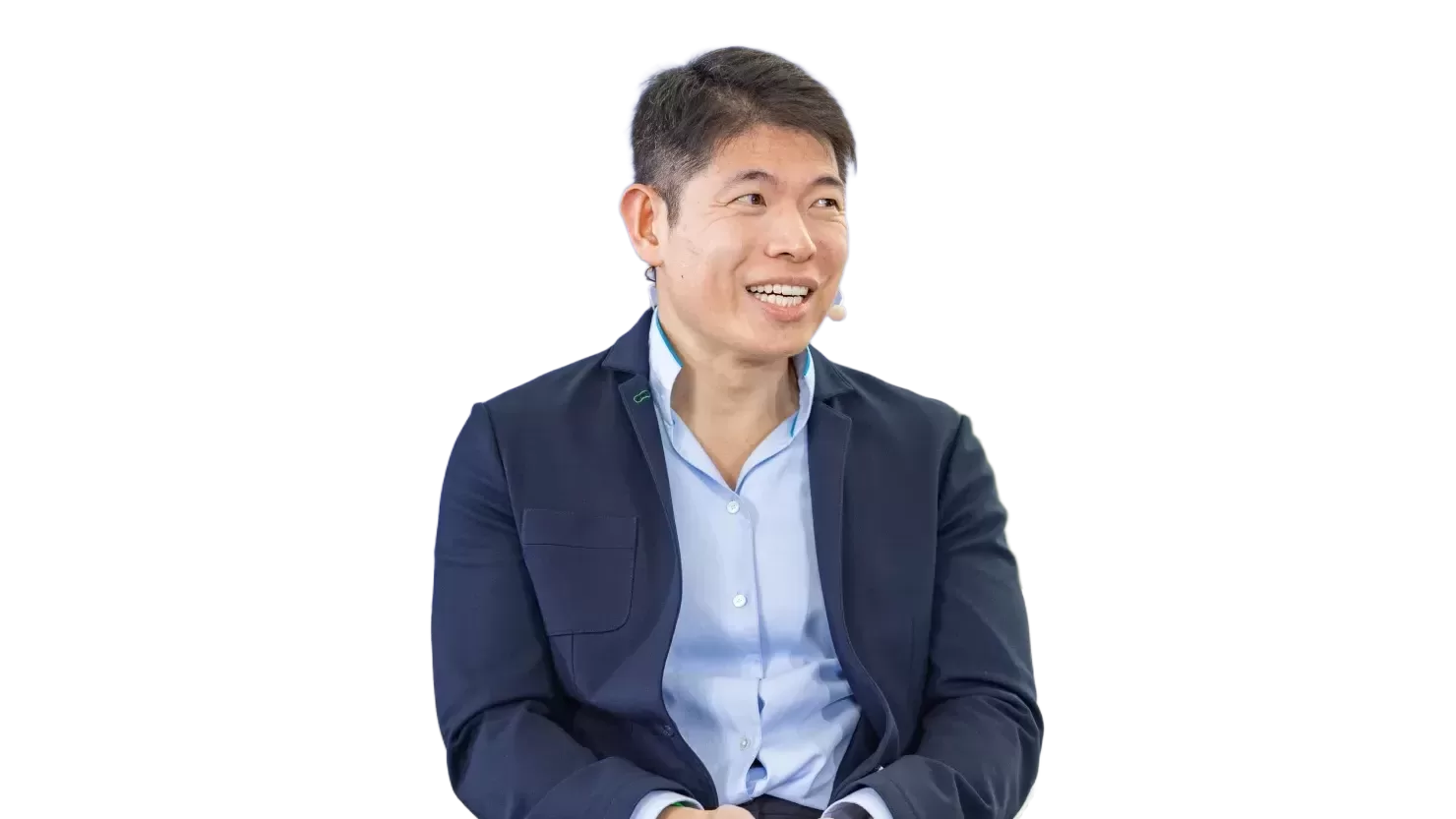
TL;DR – What You Need to Know in 30 Seconds
- Grab CEO Anthony Tan believes workers and companies that don’t embrace AI risk being replaced by those who do.
- Grab paused normal operations for a nine-week generative AI sprint, significantly boosting innovation.
- AI tools developed by Grab, such as driver and merchant assistants, are empowering everyday entrepreneurs.
- Globally, many companies are downsizing due to AI, but Tan insists AI enhances human capabilities rather than replacing them.
Is Your Refusal to Embrace AI Secretly Sealing Your Fate?
Anthony Tan, co-founder and CEO of Grab—the Southeast Asian super-app that transformed regional transport, food delivery, and financial services—has made a bold and slightly unsettling prediction: “Humans who don’t embrace AI will be replaced by humans who embrace AI.”
In other words, whether you’re a company or an individual, ignoring AI isn’t merely shortsighted—it’s career suicide.
But before we panic, what exactly does Tan mean?
Making Humans ‘Superhuman’
Speaking at Converge Live in Singapore, Tan explained to CNBC’s Christine Tan that AI isn’t just a fancy tech upgrade. Instead, it’s a crucial tool to “make you superhuman” by significantly boosting productivity and freeing up valuable time.
Tan himself isn’t just preaching—he’s practising. Despite not being a coder, he’s enthusiastically using AI coding assistants for personal and professional projects. He claims AI has radically changed his productivity, helping him accomplish things previously impossible.
I can’t code myself, but I use AI to build my own projects, for research, for Grab,” Tan explained. “It totally changes how you spend your time.
Grab’s Radical AI Experiment
Grab didn’t stop at encouraging individual AI adoption. Instead, the company took it to a whole new level, implementing an ambitious, company-wide nine-week “generative AI sprint”.
This meant putting all regular business on pause to explore AI-driven solutions across the entire company. As Tan humorously admitted:
People thought I was crazy—maybe I am—but it really moved the needle.
During this sprint, Grab developed powerful AI tools, including:
- Driver Co-pilot: An AI assistant reducing wait times and boosting job opportunities for drivers.
- Merchant AI Assistant: Imagine a single mother in Jakarta now equipped with an AI-driven sous chef, packaging expert, and even a chief revenue officer—all in one assistant. This innovation isn’t just about efficiency; it’s empowerment, reshaping the livelihoods of Grab’s vast network of entrepreneurs.
The Wider Implications for Asia
This isn’t just a Grab-specific phenomenon. According to the World Economic Forum’s 2025 Future of Jobs Report, 40% of employers globally plan to downsize due to AI, and a whopping 86% anticipate AI reshaping their businesses by 2030.
Asia, in particular, with its digitally fluent workforce and vibrant entrepreneurial scene, stands uniquely poised to lead this transition. Grab’s aggressive AI strategy under Tan’s leadership could become a model for businesses across Southeast Asia, showcasing how AI can be harnessed responsibly and productively.
Human vs AI: Not a Zero-Sum Game
Tan stresses AI shouldn’t evoke fear—it should inspire excitement. AI adoption isn’t about machines replacing humans. It’s about humans becoming irreplaceable by effectively harnessing these tools.
If you’re reluctant or sceptical, Anthony Tan’s message is clear: embrace AI now, or watch as those who do leave you behind.
Hot Take
Anthony Tan might sound dramatic—but he has a point. If you’re not actively exploring AI, you’re preparing yourself (and your company) to become obsolete. The clock is ticking: Will you adapt, or will you become the adaptation?
What do you think?
Are you inspired or intimidated by Anthony Tan’s AI-driven future? Drop your thoughts below!
You may also like:
Grab and OpenAI’s Groundbreaking SEA AI Collaboration
AI Tsunami: Transforming Business Models in Asia
AI Ads Stir Up Conversations: The Future of Marketing in Asia
Ready more about Grab’s AI solutions by tapping here.
Author
Discover more from AIinASIA
Subscribe to get the latest posts sent to your email.

AI Career Guide: Land Your Next Job with Our AI Playbook

Will AI Take Your Job—or Supercharge Your Career?

Can AI Videos Really Boost Your Brand’s Authenticity?
Trending
-

 News3 weeks ago
News3 weeks agoOpenAI’s New ChatGPT Image Policy: Is AI Moderation Becoming Too Lax?
-

 Business2 weeks ago
Business2 weeks agoCan PwC’s new Agent OS Really Make AI Workflows 10x Faster?
-

 Life3 weeks ago
Life3 weeks agoAI-pril Fools! How AI is Outsmarting Our Best Pranks
-

 Life2 weeks ago
Life2 weeks agoWhich Jobs Will AI Kill by 2030? New WEF Report Reveals All
-

 Life1 week ago
Life1 week agoAI Career Guide: Land Your Next Job with Our AI Playbook
-

 Business1 week ago
Business1 week agoWill AI Take Your Job—or Supercharge Your Career?
-

 Marketing2 weeks ago
Marketing2 weeks agoWill AI Kill Your Marketing Job by 2030?
-

 Tools2 weeks ago
Tools2 weeks agoCan AI Videos Really Boost Your Brand’s Authenticity?

